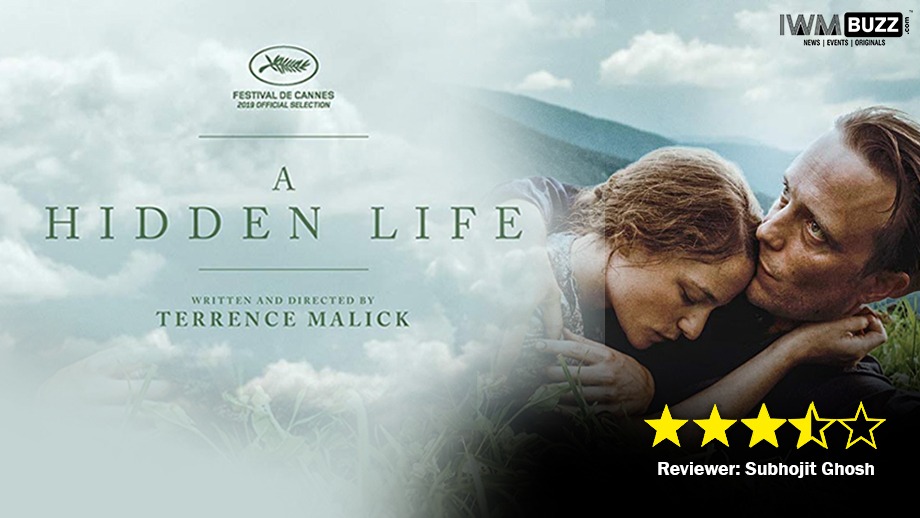Starring August Diehl, Valerie Pachner
Written & Directed by Terrence Malick
Rating:*** ½ (3 and a half stars)
Many cineastes regard Terrence Malick among the most influential and powerful living directors. His Tree Of Life features in almost every critic’s all-time greatest lists. I have never been a major Malick fan. His over-long films are self-indulgent, distracted, unfocused works of splashy art.
There is an abundance of visual resplendence in Malick often at the cost of the characters.
His latest work, a punishing 3-hour excursion adding up to an elegiac anti-war statement, captures the natural beauty of the Austrian landscape… the peaks, river, valleys, meadows and streams, dwarfing the characters who seem to linger in a lacuna created by the languorous lyricism of the landscape.
Malick enjoys creating spaces between his characters and their environment. Hence when Hitler and his Nazi genocide come knocking at farmer Franz’s (August Diehl) idyllic farm (lovely wife, passionate mother, ebullient sister-in-law, three lovely little daughters and Mother Nature) he refuses to surrender to the travails of tyranny.
Franz’s solitary resistance to Hitler (“Evil is evil”) is carried to extremes when Franz is jailed, tortured and finally executed when all he needed to do was say ‘Heil Hitler’ and the ‘inglorious basterds’ (as Tarantino so colourfully labelled them) would have been pacified.
But no. Franz would rather die than pretend to be a Hitler fan. (Non-Salman fans, please note). There is a sequence where he’s offered to sign a paper approving of Hitler which would kill his death sentence. Franz looks pleadingly towards his wife for guidance. I was reminded of a similar sequence in Hrishikesh Mukherjee’s Satyakam, where the self-destructive ideologue Dharmendra on his deathbed is asked to sign a compromised document that would ensure his wife and son’s future.
Such an extreme idealistic is essentially a selfish man. The Hidden Life doesn’t always show Franz as a glowing hero. The question that his gracefully suffering wife Franziska (Valerie Pachner), ostracized by her entire village, often asks herself silently is, does the man she loves so unconditionally really love anything but his own idealism?
Such questions are buried in over-artful visuals of the splendorous Austrian landscape and later, the bleak and brutal prison life. Somehow it all seems somewhat sterile and self-serving. The Sound Of Music setting with the closing WW2 references from the Julie Andrew classic amplified and stretched into three hours of touristy shots of Nature’s wonders and Man’s blunders while heavy boots thunder across the landscape. Cinematographer Jörg Widme has a field day.
I came away from A Hidden Life profoundly impressed by its visual resplendence and the haunting elegiacal music score by James Newton Howard. But the film is emotionally shortchanged by a director who just can’t stop admiring his own aesthetics.


